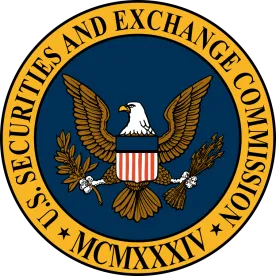The U.S. Securities Exchange Commission’s Enforcement Division released a public statement on March 23, 2020, warning that the Commission will investigate and prosecute securities frauds related to the coronavirus crisis. Since the Coronavirus has struck the United States, the stock market has lost approximately 30% of its value, creating opportunities for illegal insider trading and other securities frauds.
In its statement, the Commission warned that investors must be mindful of established disclosure controls and procedures, and insider trading prohibitions. This warning, from Co-Directors of Enforcement Stephanie Avakian and Steven Peikin, came after reports last week alleging Senators sold millions of dollars in stock after a January 24 briefing on the coronavirus.
Whistleblowers who have information about insider trading or other securities frauds related to the coronavirus or the recent collapse in stock prices can file a confidential and anonymous claim under the Dodd-Frank Act with the SEC. Different laws may also provide protection for coronavirus whistleblowers who raise health and safety concerns or fraud concerns.
The nonpartisan watchdog group Common Cause filed complaints on Friday with the U.S. Department of Justice (DOJ), the Securities and Exchange Commission (SEC,) and the Senate Ethics Committee calling for immediate investigations of Senators Dianne Feinstein (D-CA), Senate Intelligence Committee Chairman Richard Burr (R-NC), Senator Kelly Loeffler (R-GA), and Senator James Inhofe (R-OK) for possible violations of the STOCK Act and insider trading laws.
The STOCK Act, passed in 2012 with strong bipartisan support, outlawed insider trading by members of Congress. The STOCK Act mandated increased levels of financial transparency, requiring high-ranking officials to file detailed financial disclosures. These mandates include requiring filings within 45 days of any material gains. Failure to comply with the Stock Act could constitute a violation of law covered under the SEC’s whistleblower law.
The Common Cause complaints allege that Burr and his wife sold between $600,000 and $1.7 million in 33 separate transactions in late January and mid-February, just before the market began to fall and as government health officials began to issue stark warnings about the effects of the virus. Senator Feinstein allegedly sold as much as $6 million in stocks in mid-February. Senator Loeffler and her husband Jeffrey Sprecher, the chairman of the New York Stock Exchange, are said to have sold $15.3 million worth of stock. Senator Inhofe reportedly sold as much as $400,000 worth of stock in January.
Monday’s statement from the SEC emphasizes the importance of maintaining market integrity in light of the current economic downfall caused in the wake of the coronavirus pandemic. “Corporate insiders are regularly learning new material nonpublic information that may hold an even greater value than under normal circumstances. This may particularly be the case if earnings reports or required SEC disclosure filings are delayed due to COVID-19,” the statement reads. It also reminds, “those with such access – including, for example, directors, officers, employees, and consultants and other outside professionals – should be mindful of their obligations to keep this information confidential and to comply with the prohibitions on illegal securities trading.”
The statement also warned broker-dealers and investment advisers that they “must comply with policies and procedures that are designed to prevent the misuse of material nonpublic information.”
Whistleblowers, including those who reside outside of the United States, can qualify for financial awards under the Dodd-Frank Act’s whistleblower provisions. Although whistleblowers can file claims anonymously and confidentially, the Commission has very specific rules with which whistleblowers must comply to qualify as an anonymous whistleblower.
The SEC’s confidential filing procedures strictly protect the identity of any whistleblower who reports securities fraud violations to the Commission, and the Commission’s track record on protecting anonymity has been exceptional.
Whistleblowers become eligible for a reward once the SEC issues sanctions based on the whistleblower’s information of $1 million or more. The reward cannot be lower than 10% of the sanctions obtained by the SEC, or higher than 30%. More than one whistleblower can qualify for a reward, but under no circumstances can the total amount of awards paid be higher than 30% of the sanctions obtained.
The first step to filing an official complaint regarding securities fraud or insider trading with the SEC’s Office of the Whistleblower is to fill out a TCR (“tip, complaint, and referral”) form. This form notifies the SEC about a potential violation. It is to a whistleblower’s advantage to file this form as quickly as possible. A Whistleblower who would like to remain anonymous must hire an attorney to file the TCR form on their behalf. Because rewards can only be paid based on “original” information, the whistleblower who first alerts the Commission to a potential violation stands the strongest chance of obtaining the most substantial reward.
According to the SEC’s Office of the Whistleblower, the Commission has paid over $300 million to whistleblowers since the passage of the Dodd-Frank Act’s qui tam reward provisions.
Read:




 />i
/>i

